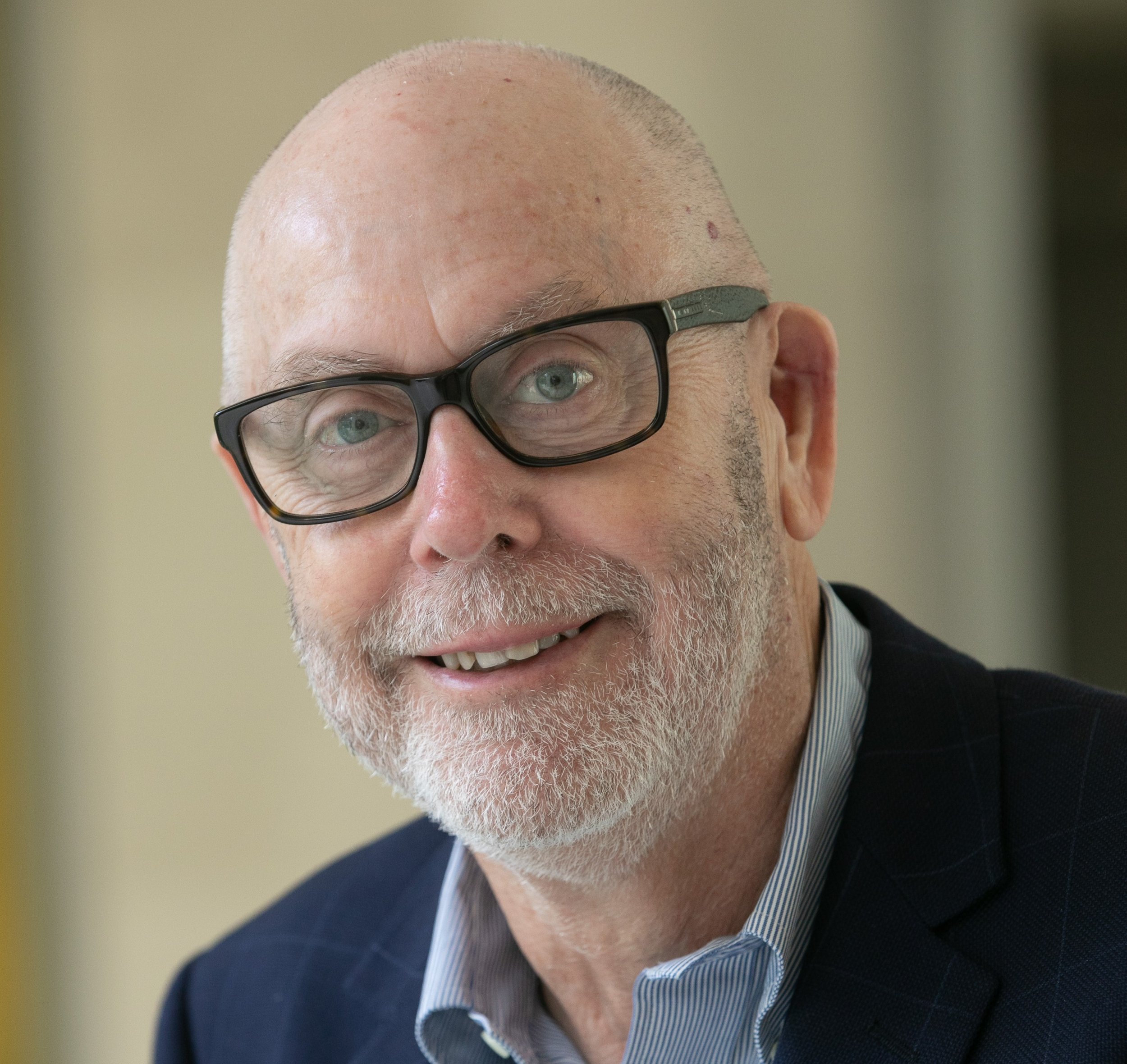
Geoff was diagnosed with stage 1 oesophageal cancer in 2016. Oesophageal cancer is a relatively rare type of cancer which often goes undiagnosed and can advance quickly. This is Geoff’s story of diagnosis, treatment and the road to recovery.
I was having some routine tests done in mid-2016 and a last-minute addition was a gastroscopy. I continue to be grateful for this very lucky inclusion, as it picked up my cancer at an early stage. Without it, my outcome would have been very different – I would likely have died within two years. Not only is oesophageal cancer rare but also there are often no evidential symptoms, as was the case for me, and so it does often go undetected until it is too late.
After diagnosis, things moved very quickly. Within 5 weeks I had my surgery and was facing a six-month recovery period. It took a lot of effort to reschedule my active life on such short notice – I was on boards, managing a thriving consultancy business and lecturing at Curtin University. Not only did I have to hit pause on all this activity but, because of the person I am, I needed to make sure I was well versed in my condition, the surgery process and what to expect post-op. My wife and I invested a lot of time in finding out as much as we could about my cancer, which wasn’t easy as there were no local support groups or people outside of the clinical staff I could go to for help. I must say, all my doctors and surgeons were excellent, but it was hard not having access to other people going through the same experience or who had a lived experience of this cancer. While the medical staff could explain the nuts and bolts of the operation and the restrictions that would be in place post-op, I would have really benefitted from talking with someone who had been down this path personally and could share their experience.
My operation went well and following 10 days in hospital, I recuperated at home. The recovery period after an operation of this nature is long and it was this period, including the significant changes in lifestyle and collateral health impacts, that was the most complex and difficult for me. While what to expect had been explained to me and I understood that it would be long and difficult, I was unprepared for just how challenging the physical and mental recovery would be. In particular, I found myself getting angry and frustrated when someone would question why I couldn’t do one thing or another. I eventually raised this with my GP, who indicated she had been expecting this outcome and referred me to a specialist to assist with my mental health recovery, which was really beneficial. I was surprised that I didn’t properly appreciate the impact of the recovery period, but I think it is likely one of those things that you can only comprehend once you have been through it, and this is where discussions with cancer survivors and having the support of peers of this nature can be so beneficial.
One of the other issues I experienced during the recovery time was the logistical management. There was no case manager or person tasked with the coordination of my post-op care, which added an extra burden on me as a patient and on my wife who fell into a role of carer through the whole process. I had appointments with my GP, dietician, surgeon and other health professionals that I needed to track and when I missed a surgeon appointment due to a clash, it was too hard to reschedule an alternative time. So, while the main collateral damage was my mental health, I also noticed that the lack of simple logistical support was an impediment to recovery.
From my understanding of the services of a Comprehensive Cancer Centre, I think the coordination of post-op activities and appointments and a component that assists with the mental health aspect of recovery would be really beneficial. To my mind, these aspects are important in a comprehensive service and having them available would improve the cancer journey for future patients. And when I look back now, while I was physically out of action for six months, I think it took four years to recover mentally, so having access to support through this long-term recovery process is really important to those navigating this journey.
In recent years, I have been interviewed about my experience by various media, which has attracted the attention of people diagnosed with oesophageal cancer. Some have reached out to me for advice and to learn from my experience, so they can better prepare for what they have ahead of them. Some of them have appreciated the simpler explanations I favour (for example, talking about thinking I had indigestion prior to diagnosis, rather than reflux). I am pleased to be able to offer this advice and experience to others, to give a personal account of my journey to local patients which is something I did not have access to. This sharing of stories and experiences is another aspect of the mental health journey that a Comprehensive Centre could positively influence. A Centre of this nature would have the intelligence and ability to coordinate survivor groups and form connections, which would be really helpful. Gathering people with similar diagnoses and experiences, so that they can lean on each other, and swap stories is something I think would positively impact those navigating the cancer journey. Bringing the clinical care together with the mental and physical side of recovery should be a part of any Comprehensive Centre and I think this would be a big win for cancer patients in WA.
